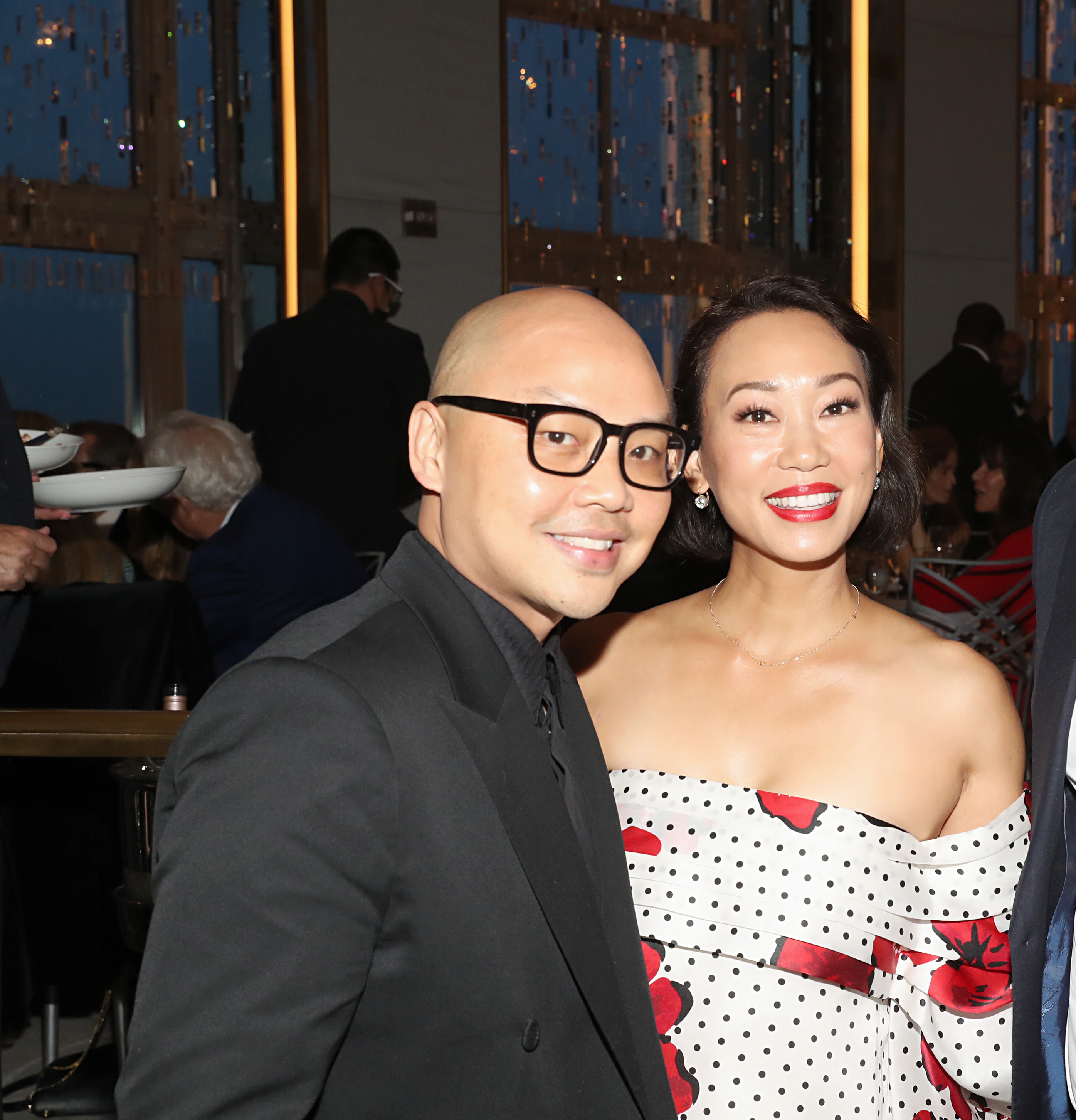Tatcha’s Vicky Tsai and Daniel Martin on AAPI representation in the beauty industry
Founder and CEO Vicky Tsai launched Tatcha, a San Francisco-based skin-care brand, in 2009. Tsai said the company was inspired by the beauty rituals of Japanese geishas. In 2020, celebrity makeup artist Daniel Martin joined the brand as its first global director of artistry and education. Martin collaborates with Tsai to come up with innovative new product launches and contributes his expertise on natural–looking makeup. A skin-care brand and a makeup artist is a nontraditional partnership, but Martin’s beliefs align harmoniously with Tatcha’s brand values. Like Tsai, Martin believes that beautiful makeup starts with beautiful skin.
Tsai and Martin’s collaboration is a testament to the importance of representation in a largely homologous industry. They’ve publicly partnered to help combat the lack of AAPI representation in the beauty industry, which inspires other members of the AAPI community to do the same.
Tatcha is devoted to making a positive impact on the world, besides providing customers with rejuvenating skin-care rituals. The company’s Beautiful Faces, Beautiful Futures education fund, launched in 2014, supports the non-profit Room to Read. Sales from full-size beauty products fund education equality for children in underserved communities.
Tsai and Martin spoke with Glossy about East Asian beauty practices and the recent strides toward a more inclusive beauty community, including through greater AAPI representation in the Western beauty industry.
How has your identity as a Taiwanese-American impacted your approach to Tatcha?
Tsai: “My Taiwanese-American heritage led to my interest in Japanese beauty culture. East Asian cultures often have a shared history, and those shared histories often influence culture including language, art, food, beauty and wellbeing practices. The ingredients and principles of Japanese beauty culture felt familiar to me from my Taiwanese heritage and yet fascinatingly different from how I grew up as an American.
My goal has always been to share the philosophy and practices that healed my skin and spirit. As a result, very little about Tatcha’s approach to caring for our clients and their skin has changed, although our approach may now resonate with more people because of this historical time we’re living in. [The] Covid-19 [pandemic] has been a catalyst for many people to start understanding the connection between skin and mind and that well-being practices are essential to looking good and feeling good inside.”
How is your signature “no makeup” look inspired by your culture or upbringing?
Martin: “As someone who suffered from cystic acne in high school, it’s been my mission to respect the skin in my work. [I like] to have [my skin] look as flawless as possible because I don’t like [the look of] cakey, heavy makeup. I grew up understanding Korean beauty rituals because my stepmother and sisters have been doing it for years. That too played into my psyche.”
Do culture and community play a role in sustaining Tatcha’s promise to bring its customers “harmony from skin to soul“?
Tsai: “Yes. Eastern well-being practices have always acknowledged that the brain, body, skin and even spirit are all part of a holistic system. That’s why Eastern medicine is often referred to as holistic medicine. As a result, our Eastern roots have informed our skin and formula philosophies, as well as our customer service philosophy.
Our culture also plays a role in our commitment to our purpose. In Eastern cultures, there’s an acknowledgment that we’re all part of a greater whole; there is less historical emphasis on individualism. We’re always considering our impact and responsibility to the people we serve. It’s one of the reasons we partner with Room to Read to support girls’ education globally. The beauty industry has historically done a great deal of damage to women and their sense of self-worth. We believe that beauty begins in the heart and the mind. We are grateful that our clients are helping to create a beautiful future for these incredible girls around the world.”
Considering your heritage, do you approach marketing to non-Asian consumers differently?
Tsai: “We share our brand promise and collection efficacy with all people the same way. Where we may differ from some conventional Western companies is that we don’t believe in capitalizing on people’s insecurities or using scare tactics in our marketing. We believe in educating our clients on how to care for the health of their skin and to make their skin-care rituals simple, joyful practices of wellbeing.”
Has Tatcha faced challenges as a result of straying from Western beauty norms?
Tsai: “Each time we’ve launched something slightly outside of Western convention, we have faced doubt and concern. We’ve launched an essence, rice enzyme powders, a makeup-priming balm informed by geisha application techniques — these are all categories unfamiliar to the Western client. Yet, they have become the foundation of our rituals because, once a client is educated on the benefits and joys of using these formulas, they appreciate the gentle transformation, and they stay with us.
Historically, Western skin care has had a tendency to promise instant results at any cost. The idea that stinging is proof of efficacy or that skin “purging” is par for the course runs counter to everything we believe. We are still regularly encouraged to take a more Western approach, but we’re clear on our formulary philosophy and we know that transformative results and gentle ingredients are not mutually exclusive.”
How has the industry changed, in terms of inclusivity, since you created Tatcha?
Tsai: “I’ve seen many new startups by entrepreneurs who are expressing their unique beauty cultures from around the world and representing all shades and genders of beauty. [These startups] are breaking through, and retailers like Sephora use their incubator programs to help these young founders bring new and important perspectives to the beauty industry. These new brands are also building social enterprise into their business models, much like Tatcha’s Beautiful Faces, Beautiful Futures program. This didn’t exist when we started, so I’m happy to see it now.
I’m also seeing categories more established in Asia starting to grow in the U.S. due to more Asian-founded brands becoming mainstream. Cleansing oils, sheet masks and even essences are now seen as skin-care essentials to many more people. There’s room for all of us, and I’m thrilled we’re all here.”
How is Tatcha celebrating AAPI Heritage month this year?
Tsai: “AAPI Heritage Month is a meaningful time for us, as a company that exists to share well-being rituals from Japan, and because so many of us in the Tatcha Family are part of the AAPI community. I have initiated research into AAPI women’s representation in the workplace with students from Harvard Business School, and frankly, [the results have] been shocking to read. The Harvard Business Review reported that Asian Americans are the least likely to be promoted to leadership in the U.S. Because we’re exoticized, the likelihood of us being harassed or subject to racial or gender bias is high, but we’re the least likely to report it. These are sobering facts, especially when considering the growing violence against the AAPI community.
People of the Asian American diaspora come from cultures that have survived thousands of years, though. We have vast reserves of history, wisdom and resilience built into our cultures that we can draw upon to grow through these experiences.
When I was growing up in America, all I wanted to do was be a typical American and fit in. Now, I am so grateful for the cultural diversity that inherently lives within me. It has become my superpower when I am most in need of community and strength.”





